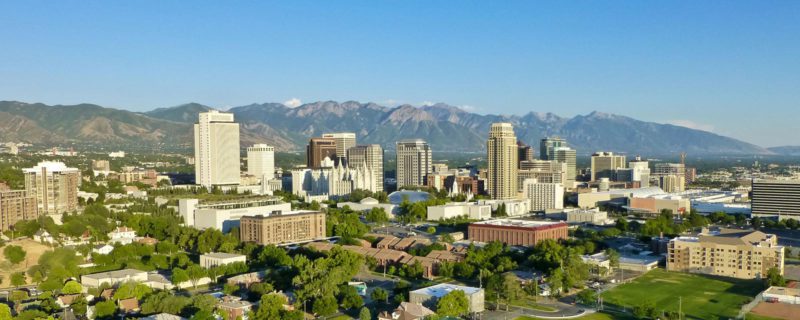By Dan Hemmert
With the 2021 legislative session’s conclusion and my first months as GOED’s executive director, I invite you to consider the session’s economic headlines with me.
First, I’m honored to work with a dedicated team of professionals and public servants. Their enthusiasm to advance Gov. Cox’s economic priorities with pride and determination, and for the benefit of all Utahns, is inspiring.
I’m pleased to report that several bills were passed that will positively impact Utah’s future and continue to make the Beehive State what one Wall Street Journal op-ed , opens in a new tab called “America’s economic star.” Our most recent economic accolade came earlier this month from U.S. News & World Report , opens in a new tab when its 2021 best states rankings announced Utah had the No. 1 economy in the country. It placed Utah No. 3 in the overall best state category.
This past year, our agency managed numerous economic relief programs that provided immediate relief to local businesses and contributed to residents’ livelihoods. We played an integral role in keeping Utah’s economy moving forward amid COVID-19 uncertainties, overseeing 11 separate Legislature-allocated programs and initiatives using federal CARES Act monies that infused more than $173,589,000 into Utah’s economy.
In the session that ended on March 5, the Legislature deliberated and passed several bills that directly impact Utah’s economic future and its ability to attract and develop a skilled workforce. Although the complete list is impressive, a few bills are worth noting that benefit rural and urban residents statewide.
- Our agency will become the Governor’s Office of Economic Opportunity. The Unified Economic Opportunity Commission was established to develop and manage a statewide economic development strategy and better coordinate state-driven economic development efforts across various state agencies (H.B. 348).
- The Utah Main Street program will provide resources for revitalizing downtowns and commercial districts, especially in the state’s rural areas (S.B. 194).
- Three new centers within our office were created: 1) the Broadband Center, 2) the Regulatory Relief Office, and 3) the Utah Immigration Assistance Center. These initiatives will, respectively, strengthen Utah’s broadband infrastructure, provide a ‘sandbox’ where regulations can be adapted to innovation, and support Utah businesses seeking to bring workers from other countries when they can’t find the right skills or workers domestically (H.B. 348, H.B. 217, H.B. 404).
- The Legislature created a post-performance tax credit called Rural Economic Development Tax Increment Financing, or REDTIF, to spur rural economic development by amending eligibility and award criteria for new commercial projects located within the boundary of specific counties or cities (H.B. 356).
- We also received $15 million to continue the Learn & Work In Utah workforce retraining program and $20 million to provide grants to the pandemic’s highly impacted businesses and live events organizers.
The 2021 legislative session had many positive economic outcomes that will benefit Utahns for generations to come, including many I am not detailing here, such as significant transportation infrastructure investments and income tax cuts. I, for one, extend a heartfelt thanks to our legislators for their hard work and dedication to make our great state a place where everyone can live Life Elevated®.


